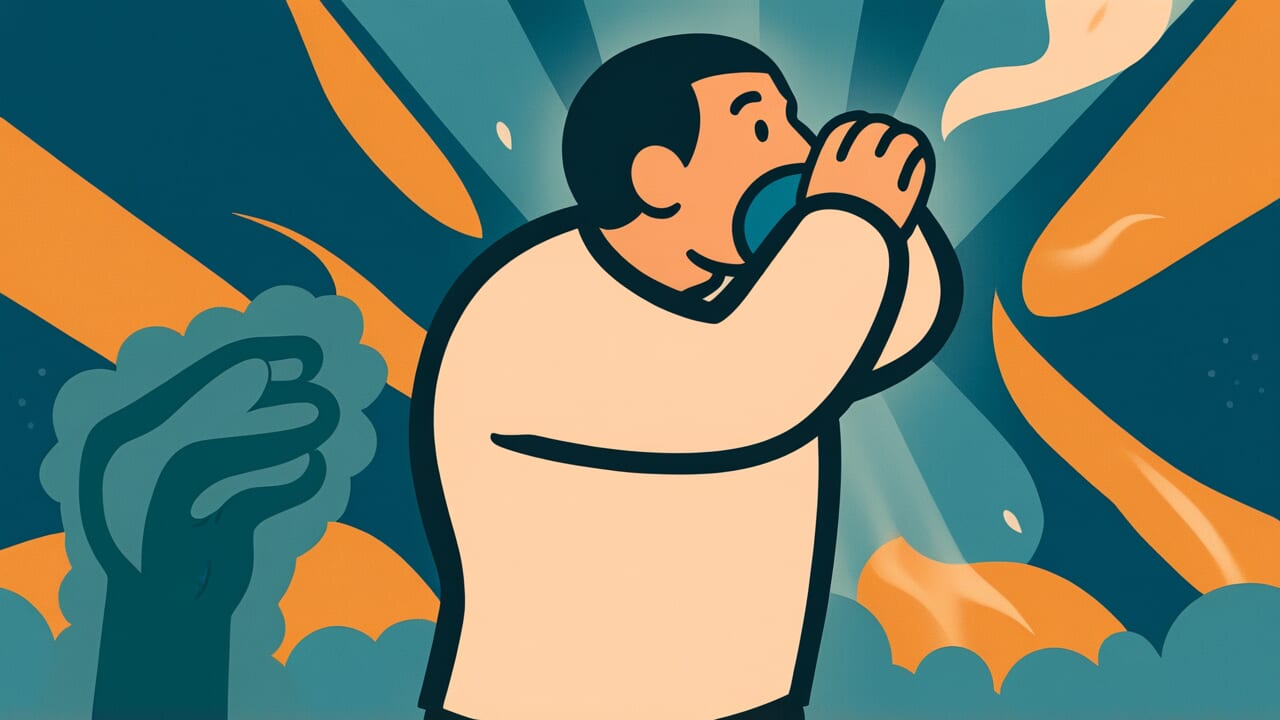How to Read “Look up to someone’s breath”
Hanaiki wo aogu
Meaning of “Look up to someone’s breath”
“Look up to someone’s breath” means to carefully watch someone’s intentions and moods. It describes how people act around superiors or powerful individuals, paying close attention to their expressions to avoid upsetting them.
The phrase uses breath as a metaphor because breath is almost invisible. This shows how carefully someone watches even the smallest emotional changes in another person.
It’s not just about listening to words. It’s about observing facial expressions, attitudes, and even breathing patterns. The goal is to sense what the other person wants and how they feel.
Today, people use this phrase when someone acts overly cautious around bosses, clients, or influential people. It often carries a negative tone.
The phrase can criticize someone who has no personal opinions and simply agrees with everything a powerful person says.
Origin and Etymology
The exact origin of “Look up to someone’s breath” is not clearly documented. However, we can understand its meaning by examining the words themselves.
“Hanaiki” literally means breath from the nose. In ancient times, people recognized breath as an important indicator of emotions. When angry, breathing becomes rough. When calm, it becomes quiet.
Breath was a physical sign that revealed a person’s inner state.
The verb “aogu” means to look up physically. But it also means to respect someone and seek their guidance. People say “look up to the gods” or “look up to a teacher’s wisdom.”
When these two words combine into “Look up to someone’s breath,” they describe watching even tiny changes in someone’s breathing. The goal is to detect their mood and intentions.
This practice likely existed before the Edo period. In a society with strict hierarchies, reading a superior’s feelings was an essential skill.
People paid attention not just to facial expressions but to breathing rhythm and intensity. This phrase perfectly captures the extreme care people took when dealing with superiors.
Usage Examples
- That department head always looks up to the president’s breath and never shares his own opinions
- She’s skilled at looking up to powerful people’s breath, but that won’t earn her real trust
Universal Wisdom
“Look up to someone’s breath” reveals something fundamental about power relationships in human society. Why do people watch others’ breath so carefully? Because it connects to survival instinct.
Throughout history, humans have always lived in groups. Every group has a hierarchy. Upsetting powerful people could threaten your position or livelihood.
Reading subtle emotional changes in others was a crucial survival skill.
But this proverb has survived for another reason. It contains a warning. Watching others too carefully means losing yourself.
If you only focus on someone else’s breath, you forget your own breathing.
Consideration matters in relationships. But when it goes too far and you lose your sense of self, the relationship becomes unhealthy.
This proverb teaches us about the difficulty of balancing respect for others with maintaining yourself. Our ancestors understood something important.
True relationships don’t come from one-sided submission. They come from mutual recognition of each other’s dignity.
When AI Hears This
Humans watching others’ breath is actually a primitive information-gathering system. Primate research shows that lower-ranking individuals detect changes in breathing rhythm and body odor from higher-ranking individuals.
This ability was directly connected to survival. If you could sense when an alpha individual’s aggression was rising, you could avoid unnecessary conflict.
What’s interesting is the asymmetry of this information transfer. The powerful person doesn’t consciously control their breath. Emotions they try to hide leak out through unconscious breathing.
Meanwhile, the observer concentrates intensely on extremely subtle signals. This information gap represents the essence of power relationships.
In modern business settings, people remain sensitive to non-verbal information like facial expressions and voice tone. Some even analyze email response speed and punctuation usage.
These are all attempts to read unspoken “breath.” Research suggests over 65 percent of human communication consists of non-verbal elements.
We rely on primitive signals more than words to navigate society.
Lessons for Today
“Look up to someone’s breath” teaches us about balancing consideration for others with self-respect.
At work and at home, trying to understand others’ feelings matters. But if you constantly suppress your own thoughts and emotions, the relationship isn’t healthy.
Your voice has value too.
Modern society increasingly values diversity and individuality. Even in hierarchical relationships, mutual respect matters more than one-sided submission.
Instead of only worrying about upsetting someone, seek better solutions through constructive dialogue. That’s what mature relationships look like.
If you feel like you’re looking up to someone’s breath, pause for a moment. Ask yourself if it’s really necessary. Consider whether you can express your opinion.
And if someone is looking up to your breath, think about creating an environment where they feel safe sharing honestly. True trust starts there.



Comments